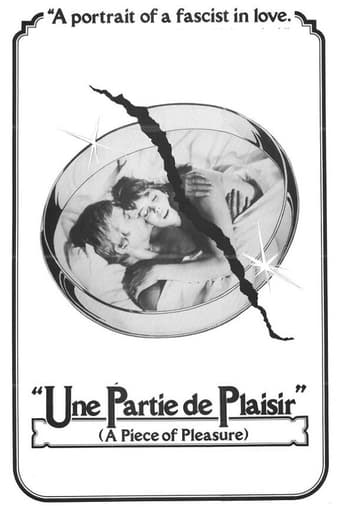MartinHafer
If you look at the picture on IMDb, it's the same one you see on the DVD for this film--a very sexy redhead who is naked. Did you know that this redhead is only in the film for a couple minutes and that you see her naked for only about two seconds?! Yet, this is how the unscrupulous jerks have marketed the film!! Talk about false advertising!! As for the movie itself, I found it to be a real mixed bag--and the bad slightly outweighs the good. While it started off with an interesting premise, as the film progressed it became more and more unpleasant--as well as more and more difficult to believe.The film begins with a couple who seem to be in love. Some time passes and the husband, quite stupidly, tells his wife he's had some affairs and she's free to do so if she wishes--as it won't hurt their strong relationship. However, when she begins to sleep with other men, two things happen--he becomes possessive and jealous and her 'flings' evolve into serious relationships, not just one night stands. Eventually, the two split up and their relationship is over. Now already this is not an especially pleasant film--but it gets MUCH darker and nastier. I'd say more, but, well...I didn't really care at this point.Perhaps the film is saying that affairs are bad or that they are bad if they are serious. Or, perhaps none of these...and it's just a film about a couple of idiots. Regardless, I just didn't care about anyone and the ending was just depressing and unnecessary. Despite director Chabrol's fame, I just wasn't impressed by this film. It seemed superficial, dull and I couldn't have cared less about them.
gridoon2018
"Pleasure Party" is a character study where nearly all the characters lack depth, except one, and even he is not really worthy of a whole movie dedicated to him. Chabrol attempts to do the anatomy of a slowly disintegrating marriage, but he chooses to tell the story from the male perspective only; the woman seems to be the inferior half in both Chabrol's and his male lead's eyes. It certainly doesn't help that both leads are not played by professional actors: Paul Gegauff was primarily a writer (who sometimes collaborated with Chabrol), while his real-life ex-wife Daniele had never acted before, and although she's not bad, her inexperience is occasionally evident (example: the crying scene). The film has its visual and aural pleasures (lost of classical music on the soundtrack), but the story is unpleasant and largely pointless (since the male lead's behavior becomes so sociopathic that it would be unwise to draw any general conclusions from this tale). You get the feeling that Chabrol made this one basically to help the Gegauff couple exorcise some of their personal demons. ** out of 4.
christopher-underwood
Phew! Well, this is certainly no bundle of fun. What an ugly film, was my first thought as I stared at the closing credits. As a seasoned film fan, one is always put on guard when a male lead tells his partner that she should experiment with sleeping with other people. He would not be jealous - oh yea! But here things go from bad to really awful and as someone else has noted it is almost inconceivable that one would be likely to choose to revisit this little number. Having said all that, to discover than long time Chabrol script writer, Paul Gegauff, not only wrote this nasty piece but plays the male lead in question. Not only that but his real life wife plays the appallingly treated partner AND that their actual daughter, plays their screen daughter, just about the only light relief this movie has. Hard to recommend to non Chabrol fans but certainly a powerful piece of cinema.
antcol8
OK, it's clear that this isn't a "great movie". It has some kind of tabloid energy that connects it to films by a director like Fuller. And it's committed to a very raw kind of amateurism that, as far as I know, is unique in Chabrol's oeuvre. The main actor was Chabrol's main screenwriter (Paul Gegauff), who also performs (with Chabrol's son) the 4-hand piano music used throughout the film (well, there is a one - pianist Schubert Impromptu at a key point). The couple and kid are a real-life couple and kid. And so on. This all lends a special intensity to the film but it also creates a lack of nuance. But I find that this energy corresponds to a certain experience I have (via my parents) of a marriage marked by emotional battering better than more nuanced films do. I wish Chabrol would have figured out a way to combine this rawness with his usual suavity in later films. Instead we end up with tired style exercises like Merci Pour Le Chocolat (although he really captures Swiss-ness in that film, I have to admit). Chabrol has a little trick, which I don't love, of adding some "surreal" element to his films right near the end. In this film, it's the veil as symbol of death. My girlfriend said "5 people couldn't pull him off her?" She didn't know that there's this kind of suspension near the end of many Chabrols. Anyway, I want to point out how Woody Allen seems to have stolen the 2 crab sequences for Annie Hall (the lobster sequences). In the 1st, the wife has an annoying fear of the crab. In the second, on the same beach, the new wife is masterful with the crab, and this makes Gegauff miss the 1st wife's now - endearing fear. Check it out.

